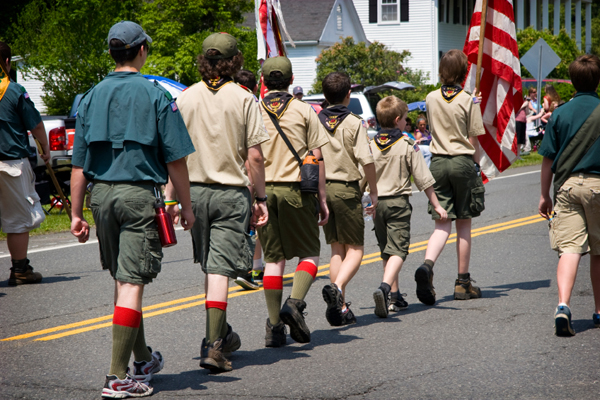3Qs: The Boy Scouts of America decision

Last Thursday, the Boy Scouts of America voted to allow openly gay youths to participate in scouting, while still restricting gay men and lesbians from leading troops. We asked Suzanna Walters, professor of sociology and director of Northeastern’s Women’s, Gender and Sexuality Studies Program, what this decision means for both the Boy Scouts of America and gay rights.
What was your response upon hearing about the Boy Scouts of America’s decision?
It’s a long time coming and there was some real dedicated activism on this issue, particularly from Scouts who had been booted out in the past. On the one hand, this is a victory; a discriminatory organization has stopped discriminating. But, of course, it’s only partial. They wouldn’t even bring up the question of gay Scout leaders. This sort of says gay kids can be Boy Scouts because they’re just kids, but grown-up homosexuals remain a threat, remain a danger. All the animus against gay adults is allowed to fester and stay strong, and is thus displaced rather than eliminated in the move to allow gay youth in but not adults. My response is mixed because, in truth, it’s a mixed result.
What is the history behind this decision?
For years, people have been trying to get the Boy Scouts to end its policy of discrimination. It’s been tried by Scout leaders; it’s been tried by current Scouts; it’s been tried by former Scouts. It’s been tried by national organizations such as GLAAD and HRC, and the ACLU. People have been aware of this and have been fighting about this for years.
The reason this can happen now is that we’re in a new climate as far as the potential for expanding gay rights. This comes at a moment of greater awareness, a greater ease at seeing an anti-gay policy as the discrimination that it is. There was pressure by many of the corporations and organizations that have supported Boy Scouts who pulled funding and who pulled other kinds of support when the Boy Scouts reiterated its anti-gay policy. Merck and Intel had ended their financing because the Boy Scouts’ policies violated their own nondiscrimination policies. More corporations and more localities have anti-discrimination policies or anti-discrimination legislation on their books, so it becomes difficult for them to do business with organizations that are discriminating.
Does this decision have significance beyond the Boy Scouts of America?
I think any move that exposes anti-gay animus and attempts to challenge it is a move in the right direction. Let me be clear about that. Any new policy that eliminates discriminatory forms whether they’re around race, class, sexuality, or gender identity is a positive move. However, what’s more important is how this intersects with other policies and more general ideas about gays and lesbians.
I read an article in The New York Times in which Wayne Brock, the BSA’s chief executive, reportedly said, “This is not about what’s legal but what’s compassionate, caring and kind.” To me, that’s such a paternalistic sentiment. Actually, it’s about doing the legal, right, ethical thing, and kindness and compassion have nothing to do with it. It’s about following a basic ethic of citizenship.
We’re all created equal. We pay our taxes, we are citizens. We should have the right to marry, the ability to serve in jobs without fear of discrimination, the same legal rights as anyone. Civil rights are about equality and ethical inclusion. I fear that so much of our contemporary discourse about gay and lesbian lives is couched in this language of tolerance, acceptance, compassion, and caring. And who doesn’t like those things? But that is not what a robust civil-rights movement is based on. It is based on deep integration, inclusion, the rule of law, the celebration of difference, and substantive equality.






